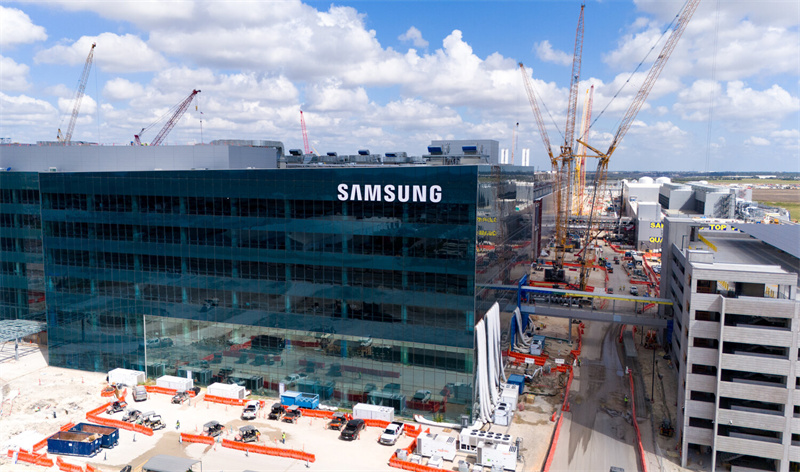Samsung Electronics is reviving its long-delayed semiconductor fab in Taylor, Texas, with plans to prepare the site for 2-nanometer production after securing a major contract from Tesla and amid shifting U.S. industrial policy.
According to ETNews, Samsung will begin deploying engineers to the Taylor facility in two waves in September and November to install new foundry equipment and establish production lines. The company has also appointed a new site leader, separating management from its existing Austin fab as operations scale up.
The Taylor fab, first announced in 2021 with an initial focus on 4nm production, stalled after customer setbacks and weak demand led Samsung to pull back staff in September 2023. With a turnaround deal signed in July—an eight-year, ₩22.8 trillion (US$19.6 billion) contract to manufacture Tesla's custom AI chips—Samsung has resumed investment and shifted the fab's roadmap to 2nm technology.
Phase one of the site consists of a single cleanroom, with production capacity expected to reach 16,000–17,000 wafers per month by late 2025. Trial runs with test wafers will begin once equipment installation is complete, with full ramp-up projected between late 2026 and early 2027, depending on yield performance.

The renewed push aligns with the Trump administration's "Made in America" agenda, which has emphasized onshoring advanced manufacturing. Industry analysts note that securing a U.S. anchor customer was critical for Samsung after earlier difficulties attracting foundry partners to its advanced nodes.
The move also intensifies the global race for next-generation 2nm semiconductors. Taiwan Semiconductor Manufacturing Co. (TSMC) has already begun receiving customer orders for its N2 node, with volume production scheduled for later this year at its Hsinchu and Kaohsiung fabs. TSMC's 2nm architecture is expected to deliver a 10–15% performance gain and 25–30% power reduction compared with its 3nm node.
Samsung, which pioneered gate-all-around (GAA) transistors at 3nm but initially struggled with yields, aims to leverage that experience to stabilize its 2nm process. The company has also stepped up efforts to court major U.S. clients such as Apple, Nvidia, Qualcomm, and AMD.
Meanwhile, Intel is betting on its 18A (1.8nm) process to regain foundry competitiveness, though executives recently acknowledged delays in hitting development milestones. Japan's Rapidus is also entering the race, with its "2HP" node reportedly achieving transistor densities comparable to TSMC's N2 and surpassing Intel's 18A.
With Tesla secured as a cornerstone customer, Samsung's Texas fab could become a critical foothold in the U.S. semiconductor landscape—provided the company can achieve stable high-volume 2nm production on schedule.
+86 191 9627 2716
+86 181 7379 0595
8:30 a.m. to 5:30 p.m., Monday to Friday
